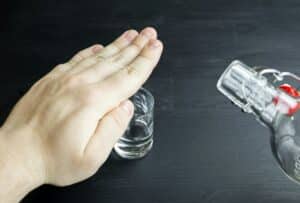Addiction is a serious chronic illness that impacts millions of Americans. If you or someone you know is struggling with addiction, it is important to seek professional treatment. Various treatments and programs can help patients heal from the physical, mental, and emotional side effects of addiction.
We take an integrated, holistic approach to addiction treatment at Northpoint Nebraska. We tailor our programs and services to the individual to make sure their unique needs are met. We provide many treatment programs that help patients heal and learn to live healthy, fulfilling lives. At Northpoint Nebraska, we offer cognitive-behavioral therapy for our patients to go through recovery and develop useful techniques and skills for maintaining sobriety. Reach out to a specialist to learn more about how CBT can help you or a loved one.
What is Cognitive-Behavioral Therapy?
Cognitive-behavioral therapy is widely used in addiction treatment. It involves teaching patients to find connections between their thoughts, feelings, and actions and increasing awareness of how they impact recovery. In CBT, patients address problematic thoughts and feelings to overcome addiction. Understanding why they feel or act a certain way and how their feelings and actions can lead to addiction can help patients be more equipped to overcome their addiction. Cognitive-behavioral therapy helps patients develop tools to view challenges and obstacles more clearly and respond to them more effectively.
CBT is an effective treatment that is used to help treat substance abuse and co-occurring disorders such as anxiety, depression, and bipolar disorder. Cognitive therapy helps patients identify and understand their negative “automatic thoughts.” These are based on impulse and are usually the result of misconceptions and internalized feelings of self-doubt. CBT emphasizes changing these negative thought patterns in order to change behaviors. Patients then develop and implement healthy coping skills into their lives. The goals of cognitive-behavioral therapy are for patients to understand their negative thinking patterns, how their negative thinking impacts their behavior, and to learn healthy ways to calm their minds and body.
Techniques and Skills Learned in CBT
Techniques in cognitive-behavioral therapy help patients understand their negative thinking patterns and how to change them. Patients develop skills in CBT that will help them heal and learn how to maintain lifelong sobriety.
Some of the techniques learned in cognitive-behavioral therapy include:
- Skills to manage triggers – Recognizing the circumstances that led to your substance abuse, removing yourself from trigger situations when possible, and coping with triggers by responding to negative thoughts and emotions more effectively.
- Thought records – Examining negative automatic thoughts and looking for objective evidence that disproves these thoughts.
- Pleasant activity schedule – Making a weekly list of healthy, enjoyable activities to incorporate into daily routines and reduce negative automatic thoughts.
- Imagery-based exposure – Thinking of a memory that produces negative feelings. By frequently revisiting a negative memory over time, a patient can reduce the anxiety it causes.
Cognitive-behavioral therapy is a collaborative effort between the patient and therapist. These techniques in CBT are individualized and can help patients address their specific thoughts, feelings, triggers, and situations. Patients develop skills in CBT that can help them improve many aspects of their life.
Cognitive-Behavioral Therapy at Northpoint Nebraska
Cognitive-behavioral therapy is one of the many programs and services we offer at Northpoint Nebraska. We take a holistic approach to addiction treatment to help our patients heal from the physical and mental effects of addiction. Our staff works with patients to create an individualized treatment plan to customize our programs and services to best fit their specific needs. If you or someone you know is struggling with addiction, it is vital to seek professional help. Contact Northpoint Nebraska at 888.351.3834 to start your recovery journey today.




